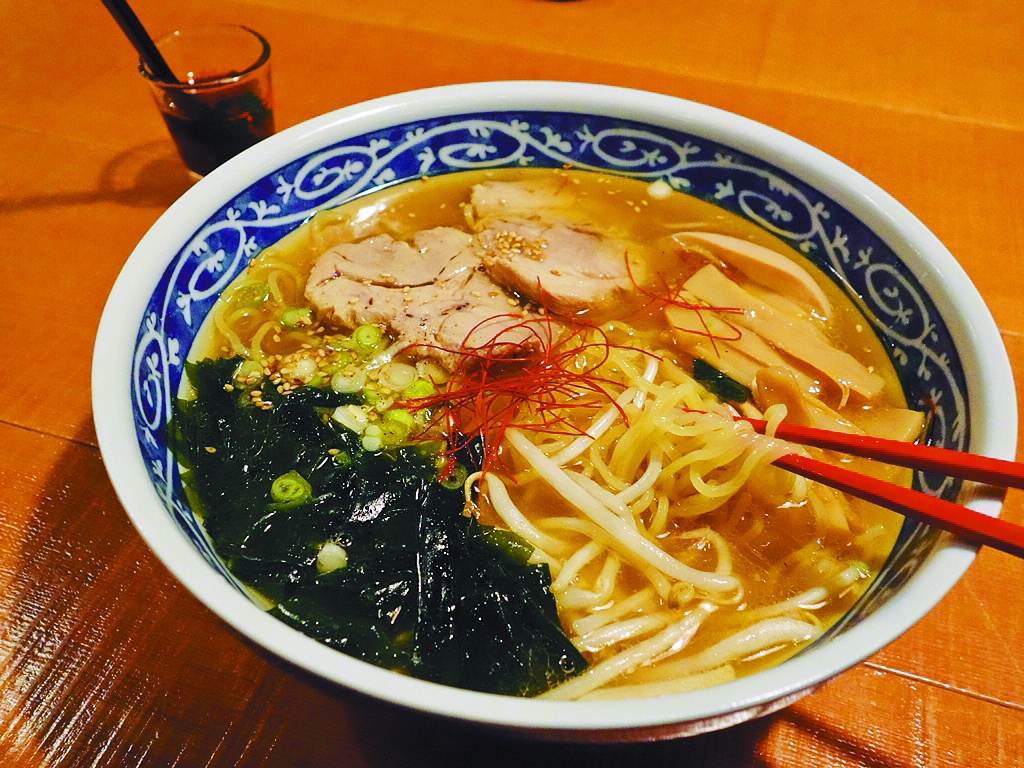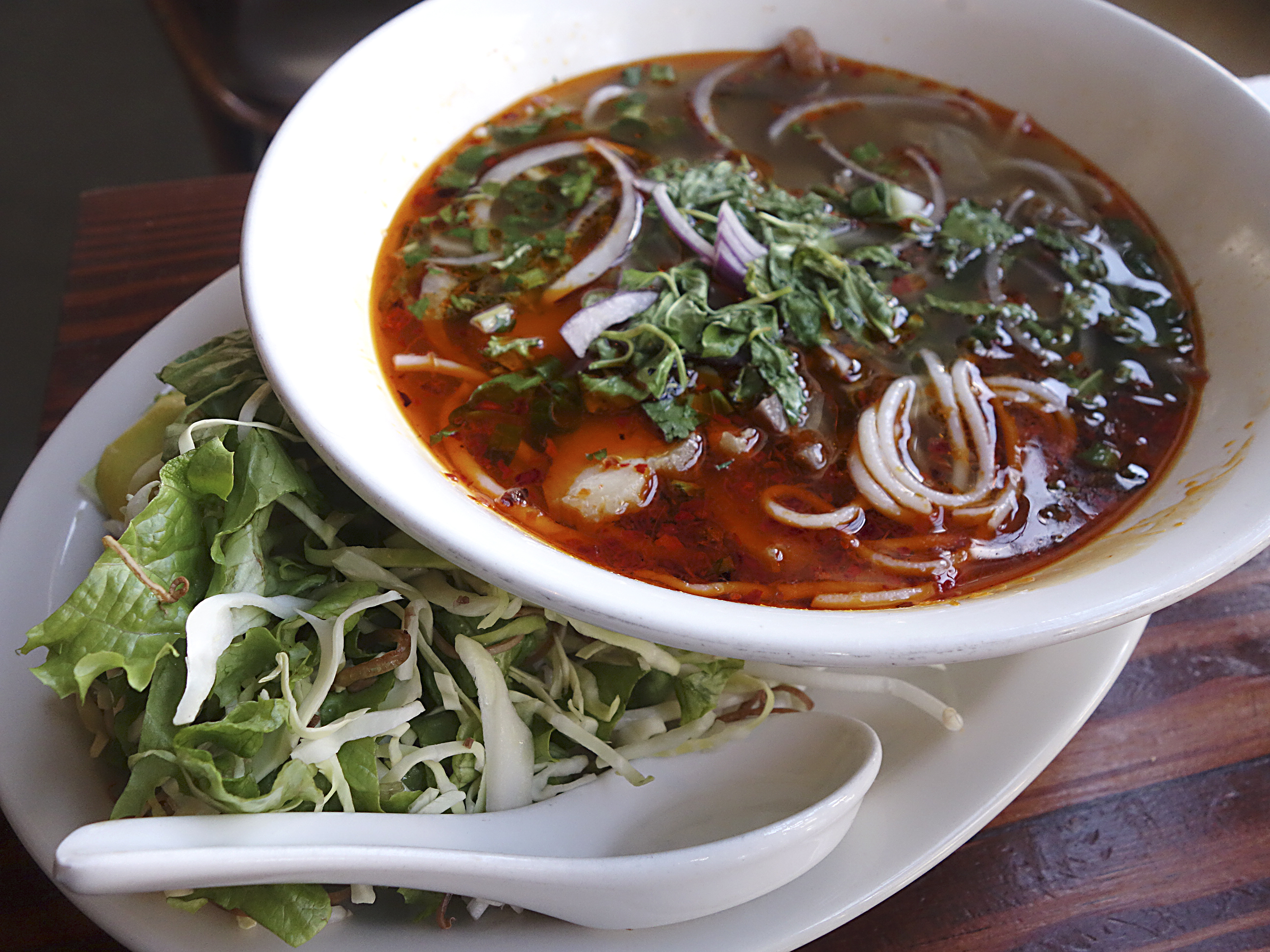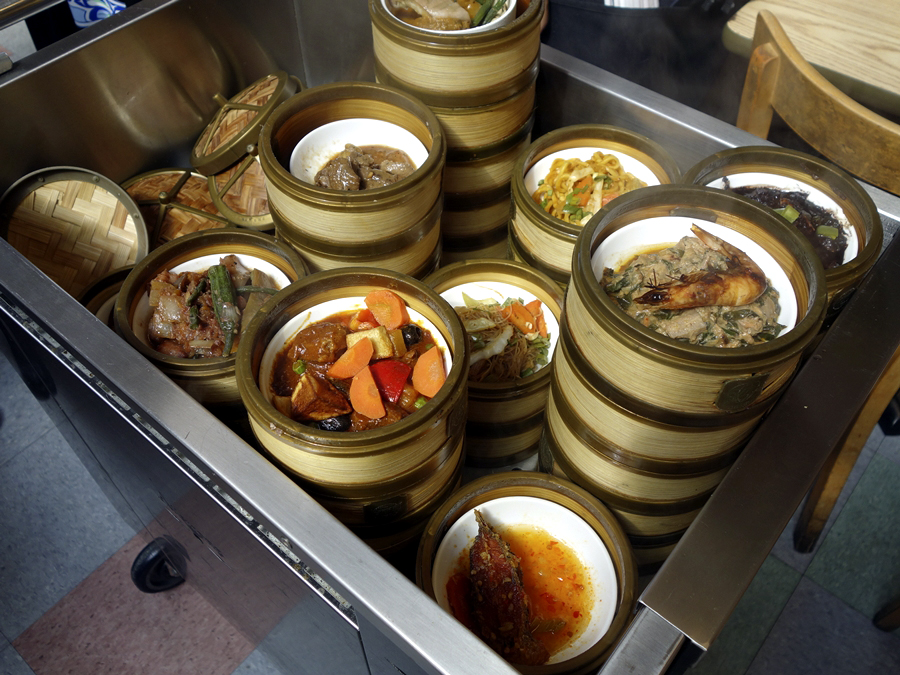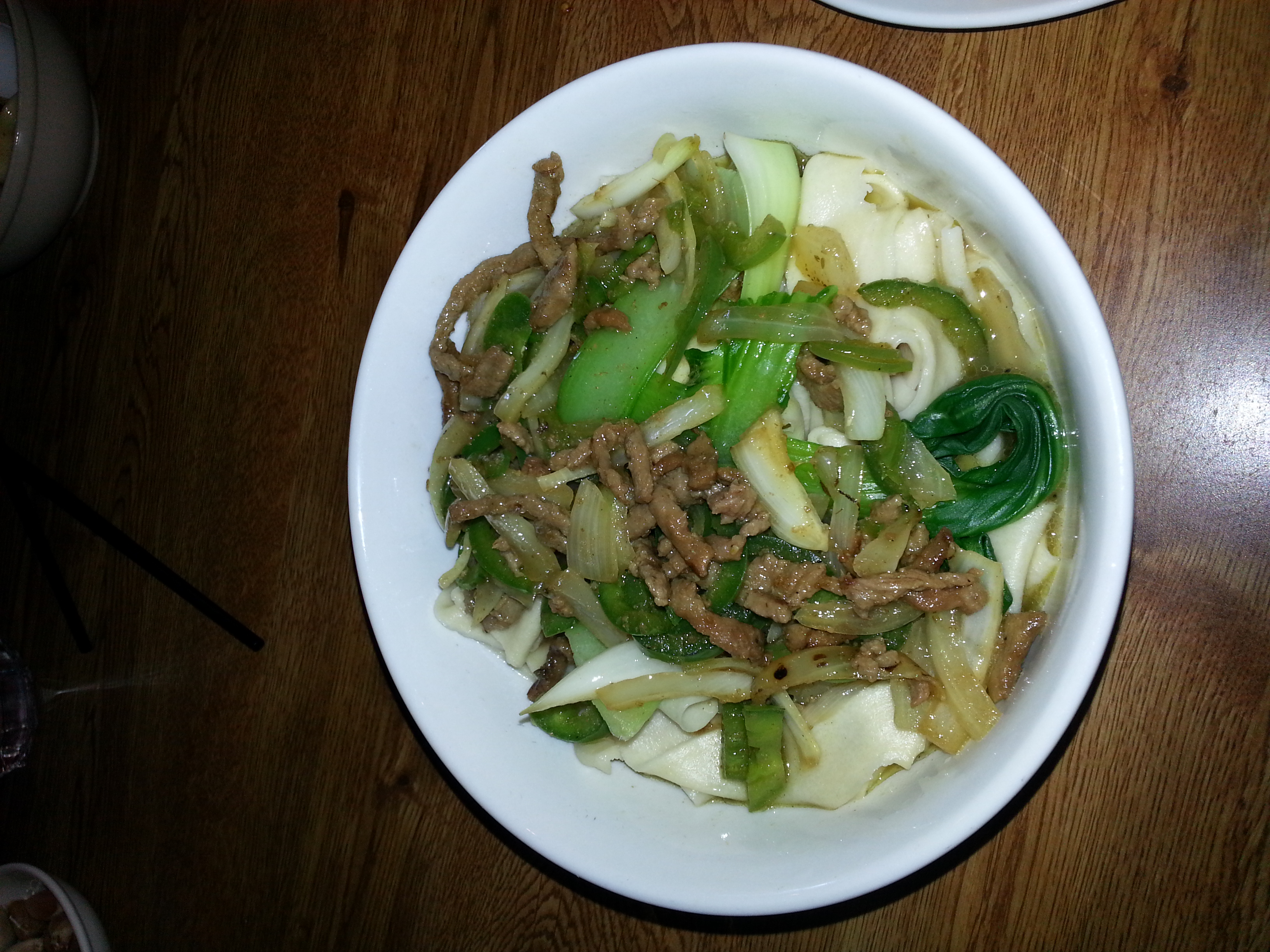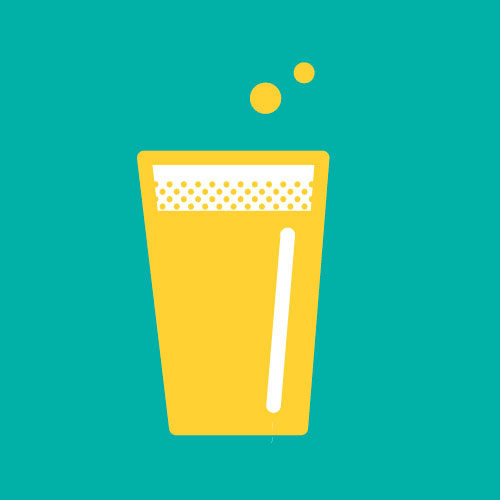She calls her pop-up Onibaba Ramen, explaining that “Onibaba refers to a mythical Japanese demon that bears the appearance of a maniacal old woman and feasts on humans.” But in straying from her usual soba-making to “dabble in the dark side of ramen,” Mutsuko Soma is, in most ways, far from a maniacal old woman. In fact, this methodical, relatively young woman is capitalizing on the ramen boom and quickly setting the quality bar high, enabling the rest of us humans to enjoy the feasting.
Soba-master Soma is enjoying a chance to play with new noodles at her Miyabi 45th restaurant, saying that while “the process of making soba is unchanging with the same few broths and techniques, with ramen there are varying styles, broths, and garnishes.” But she’s maintaining a unique soba connection. “Ramen is traditionally cooked in a basket called the tebo, but for [our] ramen, I cook [it] in a similar fashion as soba,” says Soma. “We shock the ramen in ice water after cooking, and then reheat it quickly in its cooking liquid before serving. I find that cooking the ramen this way leads to it having a better texture.”
The thin, slightly wavy noodles she served at a soft opening last week were great, hitting all the marks often missed at Seattle’s other ramen restaurants: noodles not cooked too soft, chashu that’s flavorful and fatty, eggs with runny yolks, and soup that’s still hot. Minor quibble: the soba bowls are smallish for proper ramen eating.
Mutsuka Soma making ramen at Miyabi 45th. Photo by Jay Friedman
Onibaba’s first offering this Wednesday will be shio (salt) ramen, a welcome break from the overabundance of heavy tonkotsu (pork bone) ramen in the Seattle area. For this soup, Soma adds sea bream and shrimp heads to pork and chicken to create a slightly “oceanic” broth that’s complex, but still what the Japanese call sappari—clean-tasting and light. Some might say the soup is too salty (no reduced-salt versions to cater to westerners), but I applaud Soma for keeping it real.
Shio ramen won’t be available for long, though, as Onibaba’s menu will change weekly for its Wednesday-only ramen lunch. Soma plans to cycle through the traditional ramen varieties (shoyu, miso, and even tonkotsu) before eventually exploring more modern styles. But I hope Onibaba doesn’t go too alternative. We have enough of that in Seattle, with no one striving for the level of perfection of traditional preparations that Soma seems to be seeking—and reaching. Miyabi 45th 2208 N 45th St.,632-4545, http://www.miyabi45thseattle.com/
food@seattleweekly.com
